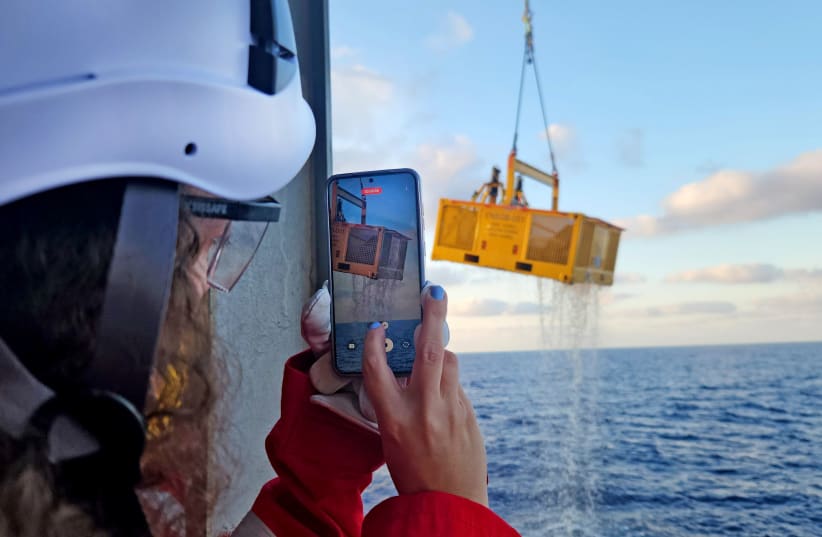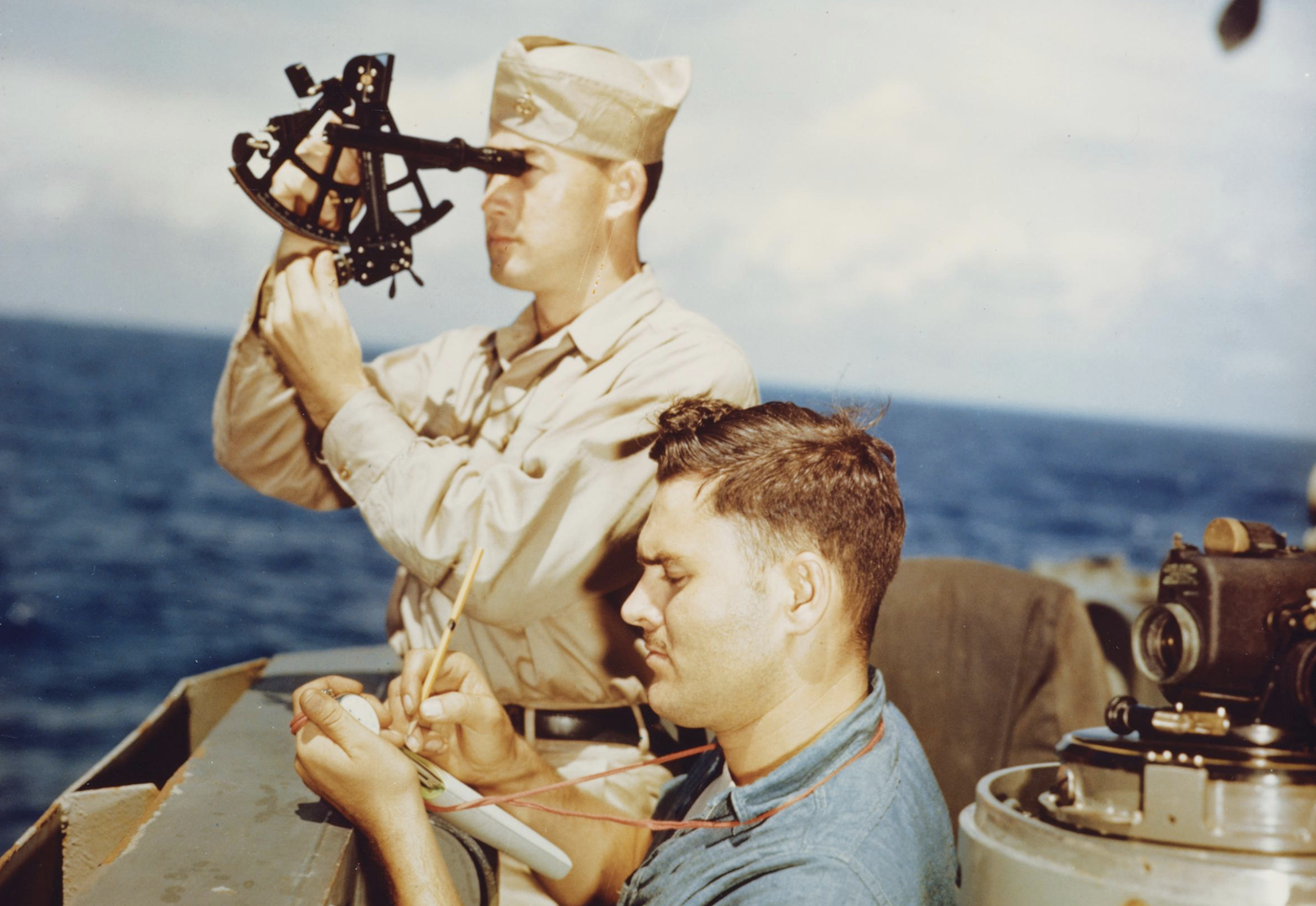
The moments when the jugs come out of the water in a special basket built in their honor. (photo credit: Emil Eljam)
A discovery of a 3,300-year-old cargo containing hundreds of ancient pots was made 60 miles off the coast of Israel in the Mediterranean Sea. Researchers believe this to be the oldest deep-sea ship ever found, showcasing the advanced technology and knowledge of ancient mariners in navigating the seas without visual references to the coast.
The cargo of the ship was uncovered during routine seafloor surveys conducted by the natural gas company Energean, operating in the East Mediterranean. Collaborating with Israel’s Antiquities Authority, efforts are underway to physically extract and retrieve sample vessels from the ship. The artifacts have been identified as Late Bronze Age Canaanite storage vessels.
Energean, a leading E&P natural gas company, manages offshore fields near Israel including Karish, Karish North, Katlan, and Tanin.
“The ship appears to have sunk during a crisis, possibly due to a storm or piracy attack – common occurrences in the Late Bronze Age,” says Jacob Sharvit, Head of the Israel Antiquities Authority Marine Unit.
“This discovery is significant on a global scale and provides insight into the navigational skills of ancient mariners who could traverse the Mediterranean Sea without sight of land. They likely used celestial bodies for navigation, observing sun and star positions,” he explains.

A quartermaster takes a sun sighting from the navigation bridge of the USS Alaska (CB-1) in 1945. U.S. NAVAL INSTITUTE PHOTO ARCHIVE
“It has been an extraordinary find, exceeding our expectations,” says Karnit Bahartan, Environmental Lead at Energean.
The company’s technicians devised a unique and intricate operation, creating a specialized tool to extract artifacts with minimal risk of damage to the entire assemblage.
A robotic investigation estimates the length of the ship to be approximately 14 yards. Additional vessels lie buried beneath the muddy seabed, with wooden beams of the ship also concealed in the sediment, according to researchers.
“The design of the vessels in the cargo suggests they were used to transport commodities like oil, wine, and agricultural products efficiently. The abundance of amphorae on board indicates extensive trade connections between the vessel’s origin and the ancient Near Eastern lands along the Mediterranean coast,” Shavit adds.
Only two other shipwrecks with cargo from the Late Bronze Age have been found in the Mediterranean – the Cape Gelidonya and Uluburun wrecks off the Turkish coast. However, these were closer to the shore and accessible with standard diving equipment.
Previous beliefs suggested that ancient trade routes followed coastlines, but this discovery challenges that assumption, showcasing the advanced seafaring capabilities of ancient mariners.
Energean, a London-based independent E&P company, concentrates on developing resources in the Mediterranean with a substantial gas portfolio. The company aims to achieve net-zero emissions by 2050.






